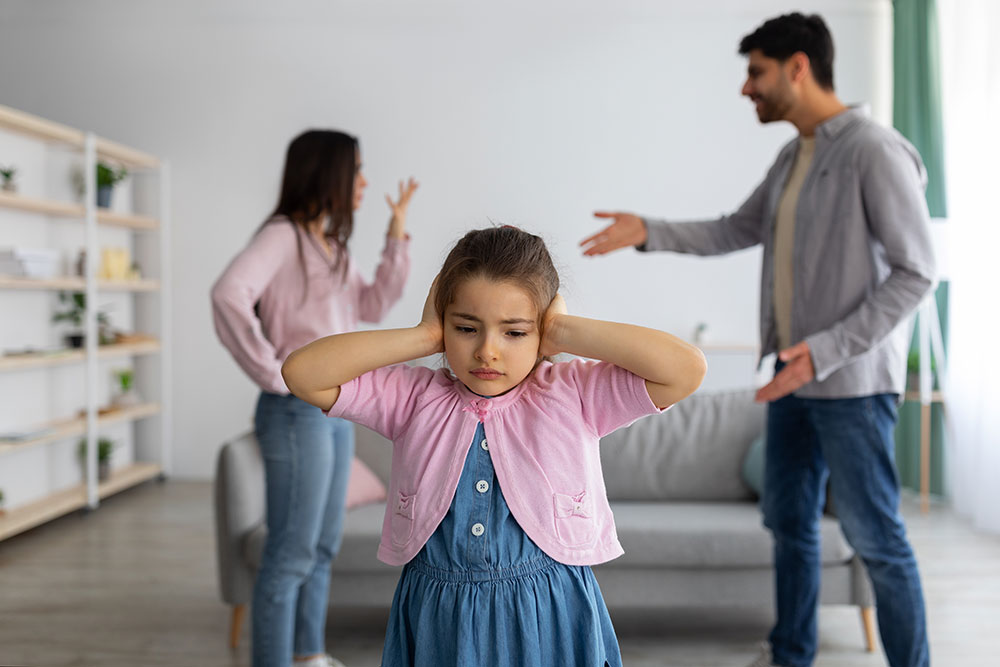Published on: December 25, 2023

Childhood is often seen as a time of innocence and carefree joy. However, for many individuals, childhood can also be a time of trauma and pain. Childhood trauma can have a lasting impact on a person’s life, affecting their relationships, behavior, and overall mental health. In this article, we will explore the effects of childhood trauma on adult relationships and behavioral health and how seeking therapeutic approaches such as psychological counseling and family counseling can help heal emotional scars.
Childhood trauma refers to any experience that causes significant emotional distress or harm to a child. This can include physical, emotional, or sexual abuse, neglect, witnessing violence, or experiencing a traumatic event such as a natural disaster or the death of a loved one. These experiences can profoundly impact a child’s development and lead to long-lasting effects in adulthood.
Childhood trauma can have a significant impact on a person’s ability to form and maintain healthy relationships in adulthood. This is because childhood trauma can create deep emotional wounds that can affect a person’s ability to trust, communicate, and connect with others.
One of the most common effects of childhood trauma on adult relationships is trust issues. When a child experiences trauma, they may learn that the people they trust the most, such as parents or caregivers, can hurt them. This can lead to difficulties trusting others in adulthood, making forming close and meaningful relationships challenging.
Childhood trauma can also affect a person’s ability to communicate effectively in relationships. Children who experience trauma may not have had the opportunity to express their feelings and emotions healthily. As a result, they may struggle to communicate their needs and emotions in adult relationships, leading to misunderstandings and conflicts.
Intimacy requires vulnerability and trust, which can be challenging for individuals who have experienced childhood trauma. Fear of intimacy is a common effect of childhood trauma on adult relationships, as it can be difficult for these individuals to let their guard down and open up to others.
Childhood trauma can also have a significant impact on a person’s behavioral health. Traumatic experiences can lead to a range of mental health issues, including anxiety, depression, and post-traumatic stress disorder (P.T.S.D.).
Children who experience trauma may develop anxiety and depression in adulthood. This is because traumatic experiences can create a constant state of fear and stress, leading to anxiety disorders and depression. These mental health issues can affect a person’s daily life, making it challenging to maintain relationships and engage in everyday activities.
P.T.S.D. is a mental health disorder that can develop after experiencing a traumatic event. Childhood trauma can lead to P.T.S.D. in adulthood, causing individuals to experience flashbacks, nightmares, and severe anxiety related to the traumatic event. This can significantly impact a person’s relationships and overall well-being.
Fortunately, there are therapeutic approaches that can help individuals heal from childhood trauma and its effects on adult relationships and behavioral health. Two common approaches are psychological counseling and family counseling.
Psychological counseling, also known as psychotherapy, is a form of therapy that focuses on helping individuals understand and manage their thoughts, feelings, and behaviors. This type of counseling can be beneficial for individuals who have experienced childhood trauma, as it can help them process their emotions and develop coping mechanisms for managing their symptoms.
Family counseling is a form of therapy that involves the entire family in the healing process. This type of counseling can be beneficial for individuals who have experienced childhood trauma, as it can help them address any issues within the family dynamic that may be contributing to their symptoms. Family counseling can also help improve communication and strengthen relationships within the family.
If you have experienced childhood trauma and are struggling with its effects on your adult relationships and behavioral health, know that you are not alone. Seeking therapeutic approaches such as psychological counseling and family counseling can help you heal from your emotional scars and improve your overall well-being.
Childhood trauma can have a lasting impact on a person’s life, affecting their relationships and behavioral health in adulthood. However, with suitable therapeutic approaches, individuals can heal from their childhood wounds and form healthy and fulfilling relationships. If you or someone you know is struggling with the effects of childhood trauma, do not hesitate to seek help and begin the healing process.
For more information about mental health conditions, visit our Mental Health Library page. To understand and cope with your major depressive disorder symptoms, get help from our top psychiatrists, psychologists, and therapists, who are known for providing the best mental health treatment and psychiatry services. To book an appointment, please call us at (800) 457-4573 or submit an appointment request.
Discover the essence of Harmony United Psychiatric Care through our impactful numbers. Our experienced team is dedicated to fostering mental well-being.
10
+
Years of Experience
With 10 years of unwavering commitment to mental health, we bring a wealth of experience to support our patients on their journey.
About Us64
+
Providers
Our dedicated team comprises 64 skilled therapists', psychiatrists', psychologists', ensuring personalized and expert care for each individual.
Providers20
+
Locations
Across multiple locations, we extend our reach to provide accessible mental health care tailored to diverse communities.
Locations114581
+
Patients Served
Over 114581 patients have entrusted us with their mental well-being, experiencing compassionate care and positive outcomes.
Book AppointmentWelcome to the latest edition of “Discover Harmony,” the newsletter from Harmony United Psychiatric Care! In this edition, we bring you insights, updates, and valuable information to support your mental well-being journey.
Subscribe to newsletter